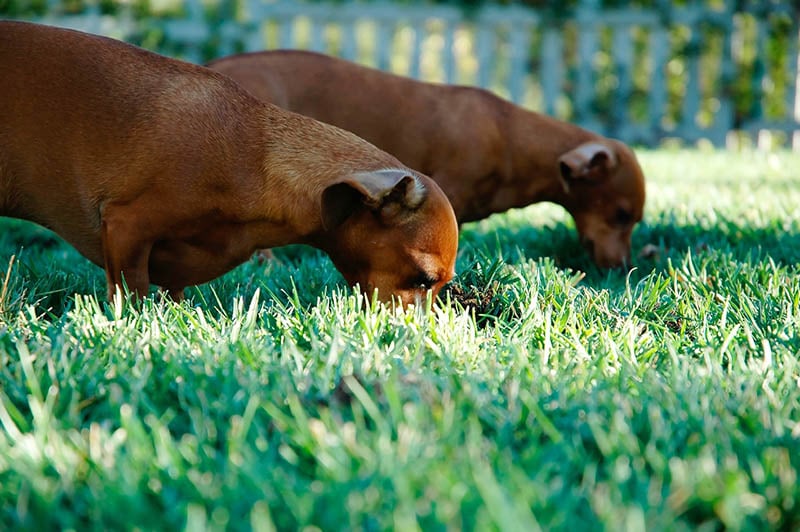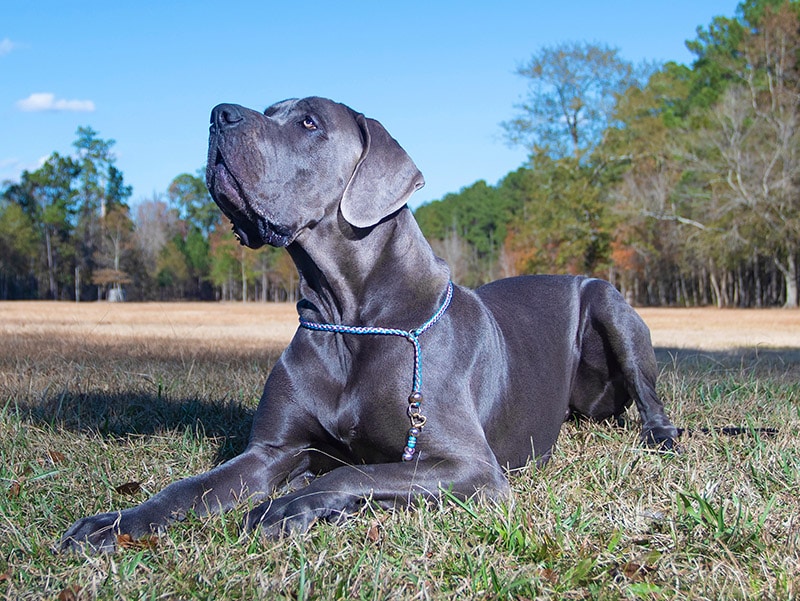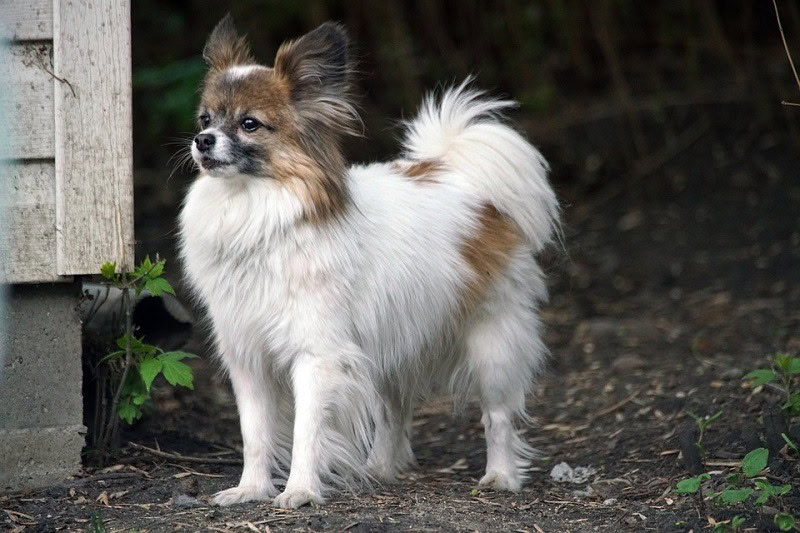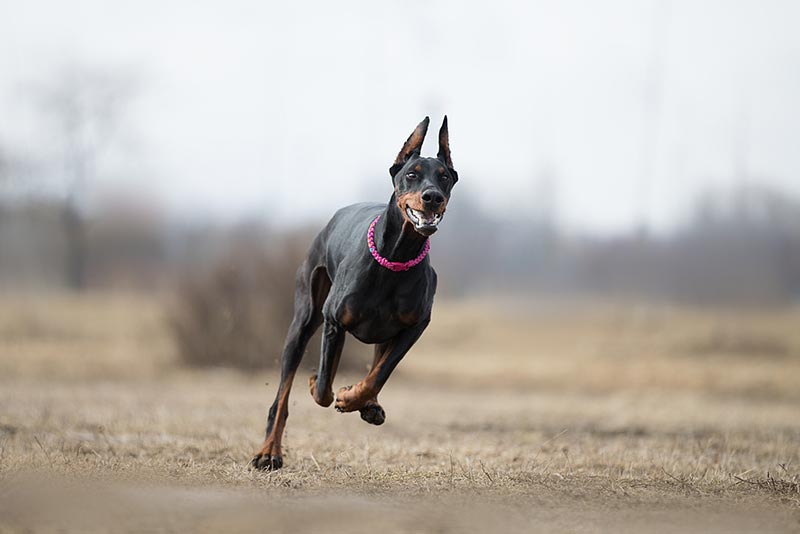My Dog’s Stomach Is Gurgling & They’re Eating Grass, Are They Sick? Vet-Reviewed Reasons

Updated on

Grumble, rumble, gurgle. What is that noise? You are probably here because you noticed some strange sounds coming from your dog’s belly—and to add to it, now they’re eating grass. Is this normal, or should you be concerned? Although it’s hard to tell your pup’s exact reasons, we are going to dive into a few potential causes.
Why Is My Dog’s Tummy Gurgling?
First, rest assured that although those sounds can be alarming, stomach noises from your dog are a normal part of their digestion and are referred to as borborygmi1. Just like our own stomachs make noise for multiple (natural) reasons, so do dogs’ stomachs, and it is not necessarily a reason to panic.
Borborygmi is the result of water and food moving through your dog’s digestive tract. The involuntary movements of your dog’s gastrointestinal tract are called peristalsis, and they should happen constantly. So, if Fido has just finished his entire bowl of kibble, or you just caught him munching on some grass, know that it is not unusual to start hearing borborygmi occurring right after. This could mean that your dog’s gastrointestinal tract is working as it should.
Although digestive noises are natural, if there is a higher frequency or you are noticing it more often, it could indicate that your dog may be experiencing an upset stomach, a difficult digestion, food sensitivity, or other digestive issues.
If your dog’s stomach gurgles while eating grass or afterward, read on as we go over four possible reasons that your dog is eating grass.
1. Soothing an Upset Stomach
When our own stomachs feel funny, the medicine cabinet for some antacids might be your go-to. For dogs, eating grass may have a similar effect, though studies do not seem to back up this theory. A minority of dogs vomit after eating grass. Vomiting may be a reasonable cause for concern if it continues or you notice other signs with it, including diarrhea, loss of appetite, or lethargy.
If you are concerned, it is always best to consult your veterinarian to rule out any serious medical conditions or illnesses.

2. Instinctual Behavior
A widespread hypothesis is that grass-eating behavior has an ancestral origin with a biological function of purging intestinal parasites.
The vast majority of dogs show no signs of illness associated with grass eating and do not vomit before or afterward. Plant eating seems to be more common in young dogs, which could be related to the fact that they are more susceptible to intestinal parasites, so avoiding them is vital, as they represent a high nutritional cost in their growth stage. It is likely that the purging effect occurs because plant material increases intestinal motility and wraps around worms.
3. Boredom or Anxiety
Sometimes there is no benefit to eating grass for a dog aside from filling their time and having a focus for their energy. Whether it is due to anxiety or boredom, it is similar to humans snacking or eating without hunger. Socializing your dog to build confidence and providing plenty of mental and physical stimulation can help with both boredom and anxiety, which can lead to other behavioral issues.

4. Yummy for Their Tummy
The reason your dog eats grass can be as simple as they enjoy it. Some dogs may just like the taste or the texture of crunchy, fresh grass. In fact, some dogs even have a preference for eating grass when it freshly emerges in the spring.
Should I Let My Dog Eat Grass?
Although it may be common for dogs to have a taste of some grass from time to time, it isn’t the best snack for our furry companions. Grass itself may not be harmful in small amounts, but grass treated with pesticides and herbicides can be toxic to dogs. Ingesting parasites like hookworms or roundworms is another possibility if your pup eats some grass contaminated by other dogs’ fecal residue (a.k.a. poop!).
- Refraining from using such chemicals on your own property
- Paying close attention to your dog in areas that may be affected
- Providing better options (like treats or affection) to distract your pup from potentially dangerous grass areas when going for a walk or potty break.
Conclusion
Your dog’s stomach gurgling, also called borborygmi, can be a normal part of their digestion. Grass eating, even with a bout of vomit after, is not necessarily a reason to panic.
Four potential reasons that your dog may be eating grass are soothing an upset stomach, following their instincts, coping with boredom and anxiety, or simply enjoying a little treat. If you are concerned about your dog’s health, speak to your veterinarian, as they can accurately assess your dog’s condition and needs.
- See also: Why Does My Dog Roll in the Grass?
Featured Image Credit: JumpStory












